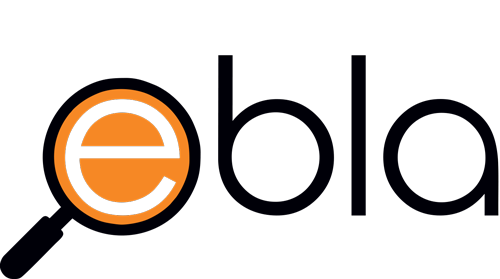In the realm of job interviews, technical skills and qualifications often take center stage. However, there’s another critical factor that can significantly impact your success: emotional intelligence (EI). Emotional intelligence refers to the ability to recognize, understand, and manage one’s own emotions, as well as the ability to recognize, understand, and influence the emotions of others. In the high-stakes environment of a job interview, EI can play a crucial role in how you present yourself, connect with interviewers, and ultimately land the job. In this comprehensive guide, we’ll explore the importance of emotional intelligence in interviews and provide strategies for leveraging EI to your advantage.
Understanding Emotional Intelligence
Emotional intelligence encompasses several key components, including self-awareness, self-regulation, social awareness, and relationship management. Let’s break down each component and examine its relevance to job interviews:
- Self-Awareness: Self-awareness involves recognizing and understanding your own emotions, as well as their impact on your thoughts, behaviors, and decisions. In the context of interviews, self-awareness allows you to accurately assess your strengths, weaknesses, values, and motivations, enabling you to present yourself authentically and confidently.
- Self-Regulation: Self-regulation refers to the ability to control and manage your emotions, impulses, and reactions, particularly in challenging or stressful situations. During interviews, self-regulation enables you to remain calm, composed, and focused, even when faced with difficult questions or unexpected obstacles.
- Social Awareness: Social awareness involves understanding the emotions, needs, and perspectives of others, as well as the ability to empathize and build rapport. In interviews, social awareness allows you to read nonverbal cues, gauge the interviewer’s reactions, and tailor your responses accordingly, fostering a positive and engaging interaction.
- Relationship Management: Relationship management entails effectively managing interpersonal interactions, resolving conflicts, and building and maintaining positive relationships. In interviews, relationship management skills enable you to establish rapport with interviewers, convey warmth and authenticity, and leave a lasting impression.
The Importance of Emotional Intelligence in Interviews
Emotional intelligence plays a pivotal role in interviews for several reasons:
- Building Rapport: Interviewers are more likely to hire candidates they feel a connection with. Demonstrating empathy, active listening, and social awareness can help you build rapport with interviewers and foster a positive relationship from the outset.
- Managing Stress and Pressure: Job interviews can be nerve-wracking, leading to heightened stress and anxiety. Emotional intelligence equips you with the tools to manage stress effectively, stay calm under pressure, and perform at your best.
- Effective Communication: Effective communication is essential in interviews for conveying your qualifications, experiences, and suitability for the role. Emotional intelligence enhances your ability to communicate clearly, confidently, and persuasively, increasing your chances of making a favorable impression.
- Problem-Solving and Adaptability: Interviews often involve problem-solving exercises, case studies, or situational questions. Emotional intelligence enables you to approach challenges with a flexible mindset, think critically, and adapt your responses to changing circumstances.
- Handling Rejection and Feedback: Receiving constructive feedback or facing rejection can be emotionally challenging. Emotional intelligence helps you process feedback constructively, learn from setbacks, and maintain a positive attitude throughout the interview process.
Strategies for Leveraging Emotional Intelligence in Interviews
Now that we’ve established the importance of emotional intelligence in interviews, let’s explore some strategies for leveraging EI to your advantage:
- Prepare Mentally and Emotionally: Prior to the interview, take time to prepare mentally and emotionally. Practice relaxation techniques such as deep breathing, visualization, or mindfulness meditation to calm your nerves and focus your mind.
- Practice Self-Awareness: Reflect on your strengths, weaknesses, values, and motivations, and consider how they align with the requirements of the role and company culture. Use this self-awareness to craft compelling narratives that highlight your unique qualities and contributions.
- Manage Your Emotions: Be mindful of your emotions during the interview and practice self-regulation techniques to manage them effectively. If you feel yourself becoming anxious or flustered, take a moment to pause, breathe deeply, and center yourself before continuing.
- Demonstrate Empathy: Show empathy towards the interviewer by actively listening, acknowledging their perspective, and validating their concerns. Pay attention to nonverbal cues such as body language and tone of voice, and respond with empathy and understanding.
- Tailor Your Communication: Adapt your communication style to suit the preferences and communication cues of the interviewer. Mirror their tone, pace, and body language to establish rapport and create a sense of connection.
- Stay Present and Engaged: Stay present and engaged throughout the interview by maintaining eye contact, nodding attentively, and asking thoughtful questions. Demonstrate genuine interest in the conversation and convey enthusiasm for the opportunity.
- Handle Challenges with Grace: If you encounter challenging questions or situations during the interview, respond with grace and professionalism. Remain calm, composed, and solution-focused, and avoid becoming defensive or confrontational.
- Follow Up Thoughtfully: After the interview, follow up with a thank-you email expressing your appreciation for the opportunity and reiterating your interest in the role. Personalize your message based on the rapport you established during the interview, and maintain a positive and professional tone.
Conclusion
Emotional intelligence is a critical asset in job interviews, enabling you to navigate the complexities of the hiring process with confidence, authenticity, and empathy. By cultivating self-awareness, self-regulation, social awareness, and relationship management skills, you can enhance your interview performance, build rapport with interviewers, and differentiate yourself from other candidates. Remember to prepare mentally and emotionally, practice active listening and empathy, and adapt your communication style to suit the preferences of the interviewer. With emotional intelligence as your guide, you can approach interviews with resilience, composure, and a genuine sense of connection, increasing your chances of success in securing your desired role.

